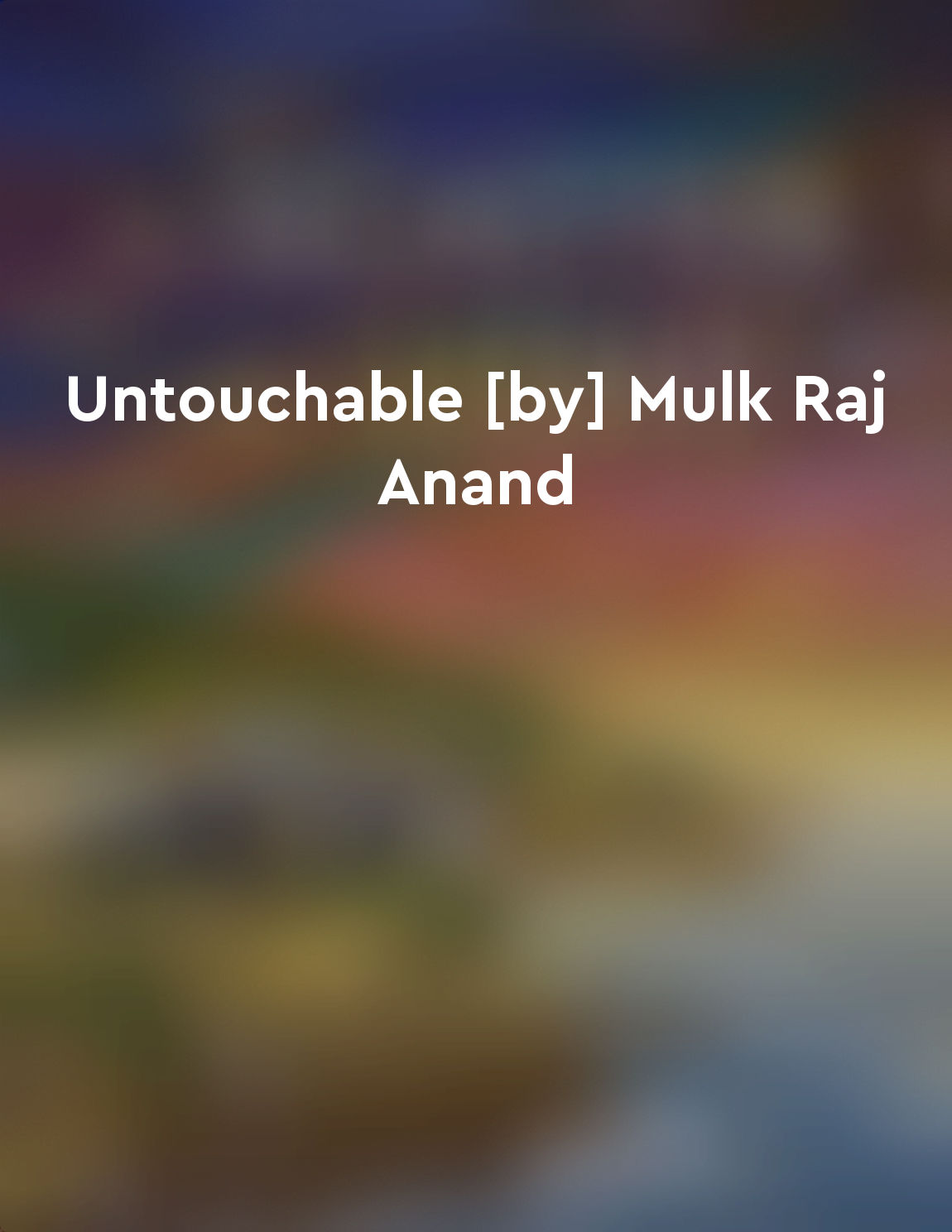Cultural norms perpetuate discrimination and abuse from "summary" of Behind the Beautiful Forevers by Katherine Boo
In Annawadi, cultural norms dictate the way people are treated based on their caste, gender, and economic status. Discrimination and abuse are not only accepted but expected in this society. Those who hold power use it to maintain their dominance over those who are deemed inferior. The cycle of discrimination and abuse is perpetuated through generations, with each new wave of children growing up to accept these norms as a part of their reality. The caste system plays a significant role in perpetuating discrimination in Annawadi. Those from higher castes look down upon those from lower castes, treating them as less than human. The Dalits, or untouchables, face the brunt of this discrimination, being forced to live in squalor and endure abuse at the hands of those in power. Their lowly status in society prevents them from ever rising above their circumstances, trapping them in a cycle of poverty and despair. Gender also plays a role in perpetuating discrimination and abuse in Annawadi. Women and girls are often treated as property, to be used and discarded at will. They face violence and exploitation on a daily basis, with little hope of escaping their fate. The cultural norms that dictate the inferiority of women only serve to reinforce this cycle of abuse, leaving them powerless to change their circumstances. Economic status further compounds the issue of discrimination and abuse in Annawadi. Those who are wealthy and powerful use their resources to exploit and oppress those who are poor and vulnerable. The vast disparity in wealth creates a system where the rich get richer while the poor are left to fend for themselves. The cultural norms that glorify material wealth only serve to reinforce this cycle of inequality, leaving little room for those at the bottom to rise above their station. In Annawadi, discrimination and abuse are not isolated incidents but rather the norm. They are woven into the fabric of society, shaping the way people interact with one another and limiting the opportunities available to those who are marginalized. Until these cultural norms are challenged and dismantled, the cycle of discrimination and abuse will continue to perpetuate itself, leaving generations of Annawadi residents trapped in a cycle of poverty and despair.Similar Posts
Poverty and discrimination are intertwined social issues
Poverty and discrimination are deeply connected phenomena that manifest in various aspects of society. Discrimination can lead ...

The novel serves as a poignant reminder of the enduring impact of caste discrimination
The novel vividly portrays the harsh reality of caste discrimination that still persists in society. Through the character of B...
Strategies for improving economic conditions of Scheduled Castes
The economic upliftment of Scheduled Castes is a crucial aspect of their overall development. In order to improve their economi...

The novel underscores the importance of empathy and compassion in a divided society
The novel 'Untouchable' by Mulk Raj Anand delves deep into the societal divides that exist within Indian society, particularly ...
The caste system perpetuates inequality and injustice, but it can be overcome through collective effort and social change
The caste system, deeply embedded in the fabric of society, creates a rigid hierarchy that perpetuates inequality and injustice...
Caste divides and separates people based on arbitrary distinctions
The system of caste is a structure that dictates where each person belongs in the hierarchy of society. It assigns individuals ...
Dr. Ambedkar's teachings on democracy and equality continue to shape India's future
Dr. Ambedkar's profound insights into democracy and equality have left an indelible mark on India's trajectory. His teachings s...
The struggle for survival exposes human nature's darker side
The relentless pursuit of survival in the harsh environment of Annawadi slum brings out the worst in individuals. The residents...
Social status determines one's life trajectory
In Annawadi, a slum near the Mumbai airport, social status holds the power to shape destinies. For those residing in the slum, ...
